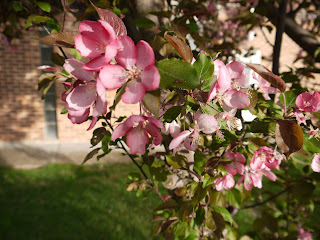Our aged father died a month ago (very close to 96 years of age). He had been living in a senior’s care home for the last number of years. With the pandemic the program of isolation was imposed immediately in mid-March. We did not get to see him for eleven weeks. On the weekend he was failing rapidly the family were called in. I spent a little time with him on the Sunday evening, prayed and anointed him with the sacrament of the sick, and then returned to Saskatoon. We were not allowed to spend an extended period of time with him which was practiced right up to the imposition of isolation.
As I drove away from the care home it was so clear to me, “But this is so cruel!”
As a society we work very hard to protect people, and the isolation of the vulnerable and those physically compromised are the elderly. But there is another side to this. What is beneficial to our physical well-being can be so harmful to our emotional well-being, our mental health.
When your family cannot be present to your last hours and/or days of your life, when they cannot share in your final breath on this earth, something is very wrong here. People are telling us how much of a emptiness they feel inside their lives because they could not be present at our father or mother’s final moments on this earth.
The absence of family indicates what is the deepest need of a human being: to have the people who love us close to us. We want to train people when they object that “Mom doesn’t know any of us anymore,” we affirm that it is probably more important that you be present to her in her dementia. She can sense of your presence and your love. She may not be able to speak your name at this point in her life but she can sense your presence!
When people reach the stage where they need to be cared for in a senior’s home, they have already lost a great number of their friends and relatives. The only people left to spend time with them is their family. Our presence (often in silence) is crucial. It is more important than when we could chatter about so many mundane things.
To use a Biblical image: happy the eighty-five year old who has family that cares and makes the effort to visit. Cursed be the family who deliberately absents themselves from these significant moments of care. One of our parishioners, who helped his wife with dementia with her lunch and supper for three and a half years (he never missed one day) shared a very painful story. “There was one family that I only saw them come and visit only on Christmas day.” Could life be so empty?
Our adult children are learning from us. How we treat our aging parents is how they will treat us. As one wise caregiver cautioned: “Remember, your children are watching you.”
Although many families are feeling the pain of their absence at the passing of their aged parents we are being brought to a deeper awareness of how important our love and friendship actually is in life. Some of the best moments may have been the time you held your aged mother’s hand, and she did not recognize you, but you knew you loved and you knew you cared!







